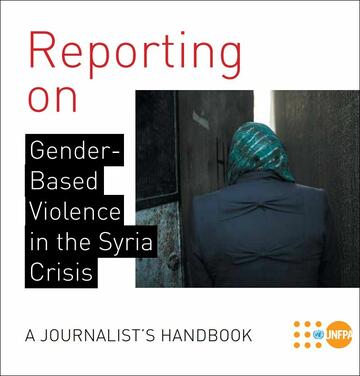
Reporting about gender-based violence demands specific skills and sensitivity, as it implies shading light on issues that are often considered 'taboo'. The inherent risk in reporting about gender-based violence relates to publicly discussing intimate and distressing matters, which can be particularly problematic especially, but not only, in countries where tradition and religion play an important role in everyday life. Moreover, journalists covering gender based violence should consider the peril of re-traumatizing persons who have already survived a serious violation.
Whilst effective reporting on gender-based violence requires a certain amount of extra effort to get it right, doing so involves building upon internationally recognised ethical principles which all journalists should be familiar with: accuracy, fairness, as well as respect for and protection of interviewees.
The Regional Syria Response Hub of United Nation Population Fund (UNFPA) has developed this handbook to offer guidance for journalists in this extremely delicate, but necessary task. The handbook examines the terminology to be used in reporting about gender-based violence. It then considers ethical questions and practical concerns associated with covering gender-based violence. Finally, it provides an overview of relevant actors involved in combating gender-based violence and providing support services for survivors.
Tags: Media and gender Ethics of journalismThe content of this article can be used according to the terms of Creative Commons: Attribution-NonCommercial 4.0 International (CC BY-NC 4.0) . To do so use the the wording "this article was originally published on the Resource Centre on Media Freedom in Europe" including a direct active link to the original article page.

